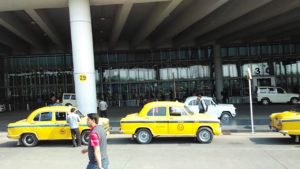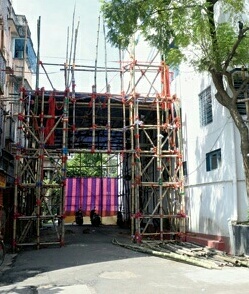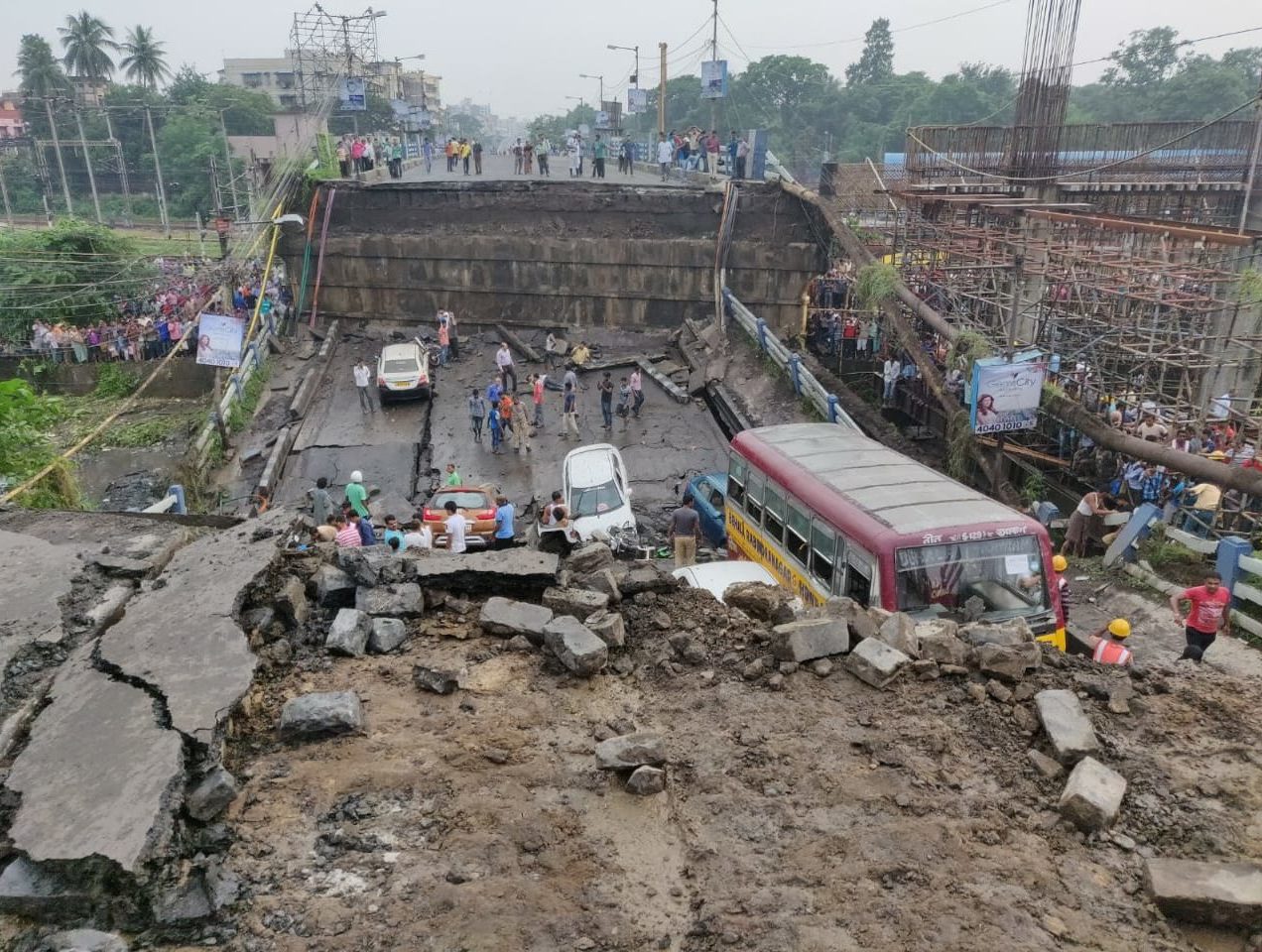A little over a fortnight ago, a bridge collapsed in Kolkata.
It was a bridge that connected my home in the southern suburbs of the city to the north and the east – a bridge I crossed twice every day for much of my life. Sitting hundreds of miles away, I endured a few minutes of breathless panic that day till I could confirm that both my parents were at home.
Since the disaster – which could have been and should have been prevented – people living south of the bridge have been facing nightmares on their daily commute, which was already quite hellish, thanks to the ongoing construction to extend the Metro network. So, when I decided to make a quick trip home, I was prepared to spend an hour or two more than usual on the journey home from the airport.
But just as in my school exams, I wasn’t prepared enough.
I used one of the cab aggregators to book a cab and waited at the appointed place. Soon, the cab driver called to know my exact location, and swiftly declined to pick me up when he heard my destination. “We are not going that side at all, don’t you know about the bridge collapse?” He defended his decision, even as I tried to press the point that the cab company had allowed me to book, so he was under obligation to take me. After several minutes of argument, he disconnected the call, and refused to pick up again. I waited for him to cancel the ride, and then tried to book again, and had to go through a repeat performance, marginally shorter this time.

I went and stood in queue at the prepaid taxi counter, bracing myself for a longer journey via Beleghata and Manicktala, since the prepaid cabs avoid the time-saving route of the EM Bypass. I needn’t have worried so much, because as it turned out, prepaid taxis were not going to Behala either. When I stared at the man at the counter in disbelief, the Bidhannagar Police officer sitting next to him confirmed that his colleague was not joking. I asked how those landing at the airport and intending to travel onwards to Behala were managing, assuming many, like me, would have heavy suitcases. There was no answer. Instead, I was told that I was holding up the line. By way of a solution, I was offered a booking till Tollygunge police station, from where I would either have to make my own way or strike a deal with the cab driver and pay him extra to take me home. That was the only choice I had, so I took it. “There are policemen at the pick-up point. Ask one of them to instruct the driver to take you the extra distance by meter,” said the policeman at the prepaid booth, helpfully, as I left.
There were no policemen in sight at the pick-up point. The driver of my assigned cab was a pleasant man from Bihar, who agreed to drop me home and also follow the faster Bypass route – for an extra 300 rupees. It was considerably more than the meter rate, but perhaps not that great an amount to pay for the assurance that I would reach home in a few hours’ time. I agreed.
In a week’s time, thousands of non-resident Kolkatans will head home, and I’m guessing many of them will need to go to New Alipore, Behala and beyond. Isn’t it the duty of the government and the civic authorities to ensure that they are not harassed while trying to find transport?
As my cab made its way out of the airport, I saw a number of people looking slightly lost, stopping passers-by and asking questions, or shouting into their mobile phones in English or Hindi. I reflected on my relative privileges – I knew the city roads, was a native speaker of the local language and if nothing worked, could always ask someone to come and pick me up. How hostile must Kolkata appear to someone new to the city, and without my privileges, facing a situation similar to mine at the airport? In drawing room conversations, however, Kolkata is still the perfect humane foil to the brash uncaringness of Delhi and dispassionate professionalism of Mumbai.
As someone who lives in the southern part of India, I was witness recently to the citizen-driven relief efforts that pulled Kerala back to its feet after the worst floods in nearly a century. A collapsed bridge is no comparison to that scale of devastation, and it is not my argument here that Kolkata or Bengal would not be able to cope with bigger disasters. In fact, on my way from the airport, I noted the efficiency with which the Kolkata Traffic Police were handling the traffic snarls resulting from an important connector going out of operation.
What seems to be missing is a sense of perspective and urgency among the citizens.
Pujo is round the corner. And every year, the number of pandals dotting the city and its suburbs rises by a few thousand. The bigger the pujo, the greater its entitlement to public amenities, particularly roads. In Hindustan Park, an affluent residential area, two under-construction pandals at two ends of a motorable lane are happily blocking traffic, besides taking up all the parking spaces.

As I drove through one diversion after another in Chetla, New Alipore and Behala, I could see bamboo poles coming up everywhere – indicating that things are about to get worse in the weeks to come, when the city will burst at its seams with millions pouring out on to the streets to partake of the Pujo bacchanalia. Can you – and more importantly, should you – conduct a carnival of this scale with infrastructure in such a shambles?
What would it have taken for a few pujo committees to come together and take a call to either massively scale down their festivities, or call it off this year? Yes, Durga Puja runs its own economy, and is a major source of income for hundreds of families, but there are ways of compensating those whose earnings are likely to get affected.
For someone living in Kolkata, and its southern extremes in particular, the impending pujo ought to feel more like an oncoming train than a shower of confetti.
I don’t live in Kolkata any more. My parents do. So, before I left, I did what I could – I made them promise that they wouldn’t step outside the para unaccompanied till the pujo gets over.


Comments are closed.